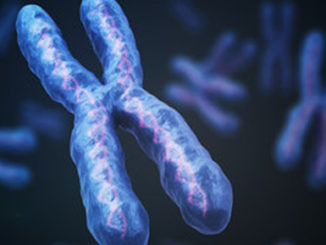Articles that explore the connection between epigenetics and diseases and disorders, including cancer, cardiovascular disease, diabetes, autoimmune disease, and more.
Adolescent alcohol exposure is a well-known, major public health problem affecting a large number of youths during a particularly critical moment of cognitive and psychological development. Characterizing its effects and potentially reversing any damage caused is therefore of significant clinical interest. “Adolescent binge drinking is dangerous and has long-term epigenetic effects on the brain,” notes Dr. Subhash Pandey, director of the UIC Center for Alcohol Research in Epigenetics and senior scientist at the Jesse Brown VA Medical Center. “Understanding this mechanism [more…]
The field of epigenetic research has been making huge strides in identifying the mechanisms involved in controlling how genes are expressed. A lot of effort is put into studying the importance of the genetic code documented in cells, but also of the structure of the chromatin supporting it. As the protein-based infrastructure surrounding DNA, chromatin controls how exposed the DNA is. No matter how critical the genetic sequence may be, it won’t be properly transcribed into RNA and then into functional proteins [more…]
Type 2 diabetes is a chronic illness in which a person’s body cannot produce enough insulin to process blood sugar in a healthy way. It affects millions of people all over the world, and it can be a debilitating and even deadly disease if not properly managed. The inability to metabolize glucose can lead to long-term damage to blood vessels in organs and tissues— and may eventually lead to death. Quantifying this damage lets people take action, changing their habits and [more…]
More and more people are learning about how an individual’s genetic sequence determines their body’s development and how that also affects their health over a lifetime. But genes alone are not the only factor contributing to the way an individual’s features emerge and perform. Things like how DNA is exposed—or not exposed—to the cellular machinery that carries it from code to reality are also vital to consider. The field of epigenetics is still rather young, and much effort is needed [more…]
Sex is a natural and normal part of life. When practiced safely with a consenting partner, it’s not only pleasurable but has certain health benefits. However, some people can be obsessed with sex, to the point that it causes them more harm than does any good. These individuals are usually diagnosed with having hypersexual disorder (HSD) – a condition where excessive sexual thoughts and actions interfere with the ability to function day-to-day. Often accompanied by other medical conditions, the causes [more…]
One of the great pastimes of the human species is getting together to have a couple of beers after work, going out for cocktails on the weekend, or ending your evening with a nightcap before bed. Alcohol is a part of many cultural norms, and is fine in moderation, but could promote health problems down the line if consumed in excess too often, or too early. American adults of both sexes are no strangers to binge drinking; one out of [more…]
Widely lauded for its anti-inflammatory effects, aspirin is often resorted to in regular doses for disease prevention. For example, previous research studies have supported the idea that women who regularly take aspirin and then are diagnosed with breast cancer may live longer, which has perpetuated this as a medical recommendation. However, the latest study out of the University of North Carolina’s Gillings School of Global Public Health shed light on a subgroup of breast cancer patients for whom regular use [more…]
Autism spectrum disorder (ASD) comprises of a range of neurodevelopmental disorders characterised by social/communication deficits as well as repetitive/restrictive interests or behaviours. Currently, the exact causes of ASD symptomology is far from being understood. This is, in part, due to the complex and multifactorial nature of the disorder. Despite such complexities significant progress to understanding the disorder has been made over the past few decades. Currently, it is speculated that a combination of genetic susceptibility (such as possessing rare or [more…]
The importance of mental health is a prominent and ongoing issue in the United States. According to the National Alliance on Mental Illness, 1 in 5 American adults experiences a mental illness in a given year, which can make living a healthy lifestyle challenging. Some mental illnesses are due to problems with brain chemistry and are not well understood, therefore are severely under-treated. Dopamine—one of our brain’s “feel good” chemicals— is a neurotransmitter in the brain responsible for transporting information [more…]
The factors contributing to the development of cancer in an individual are often complex and varied. Sometimes they are more straightforward, like when someone carries a specific gene known to indicate cancer risk; for example, specific mutations of BRCA1 or BRCA2 are linked to breast cancer. But usually, these risk factors are not so directly observable, making cancer risk detection—and possibly even cancer prevention—difficult. Any insights into what leads into the development of cancer are therefore critical. It’s not just [more…]











